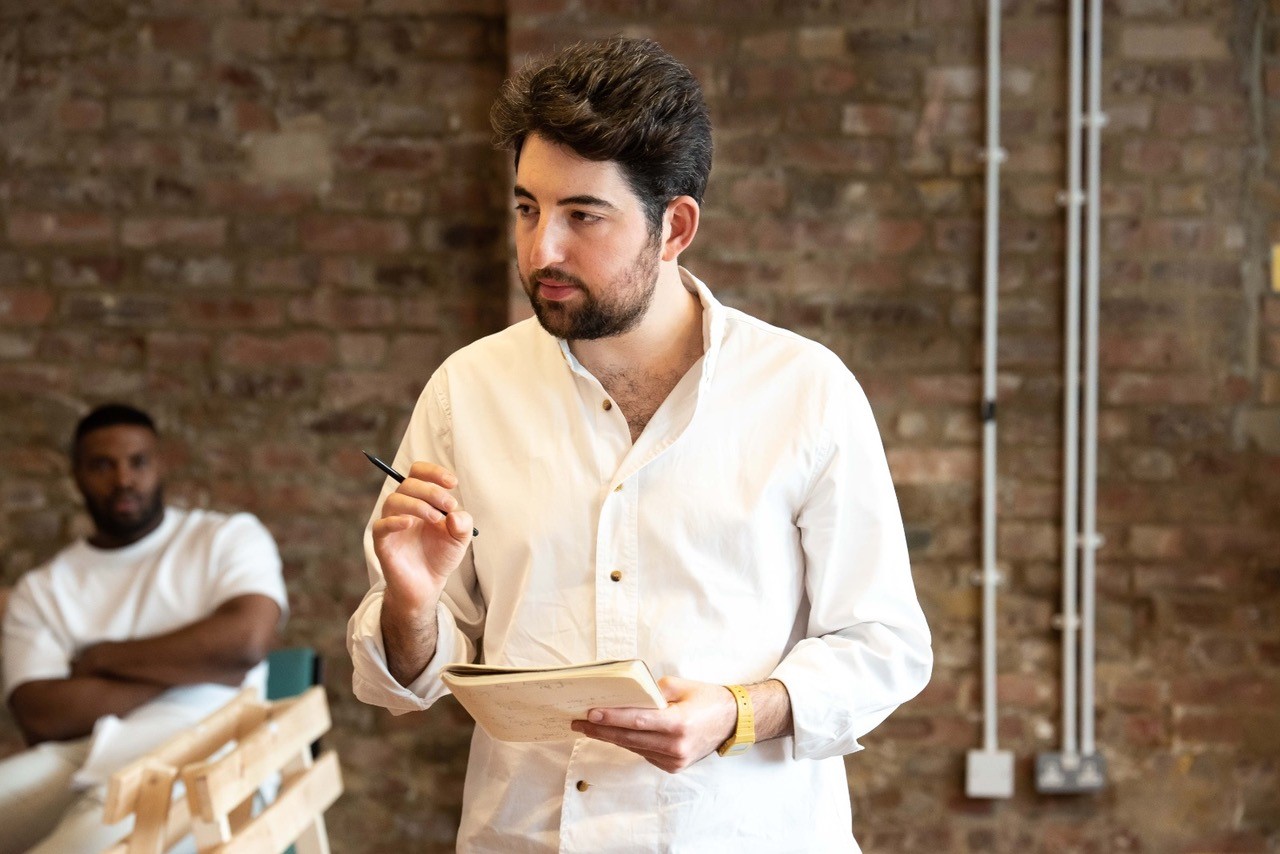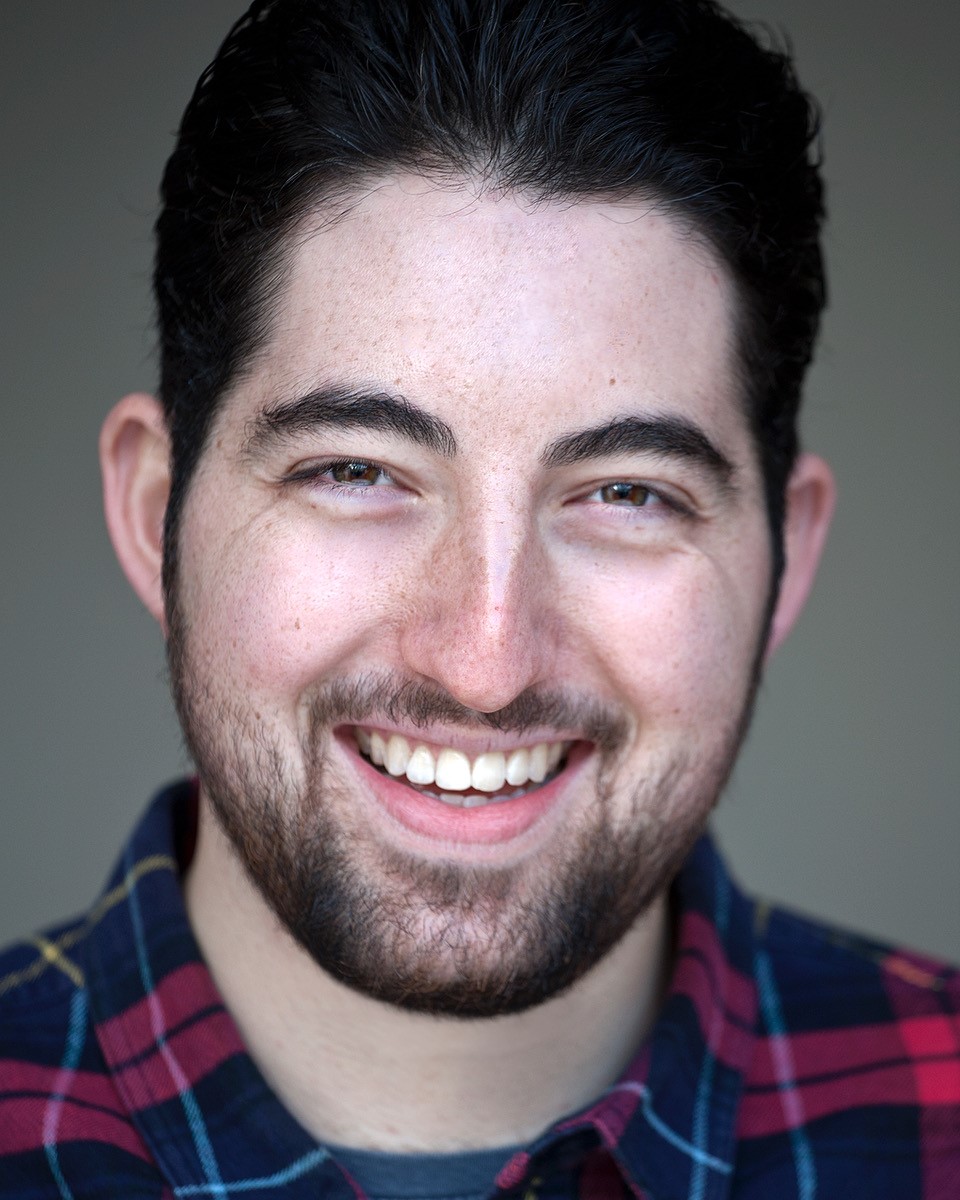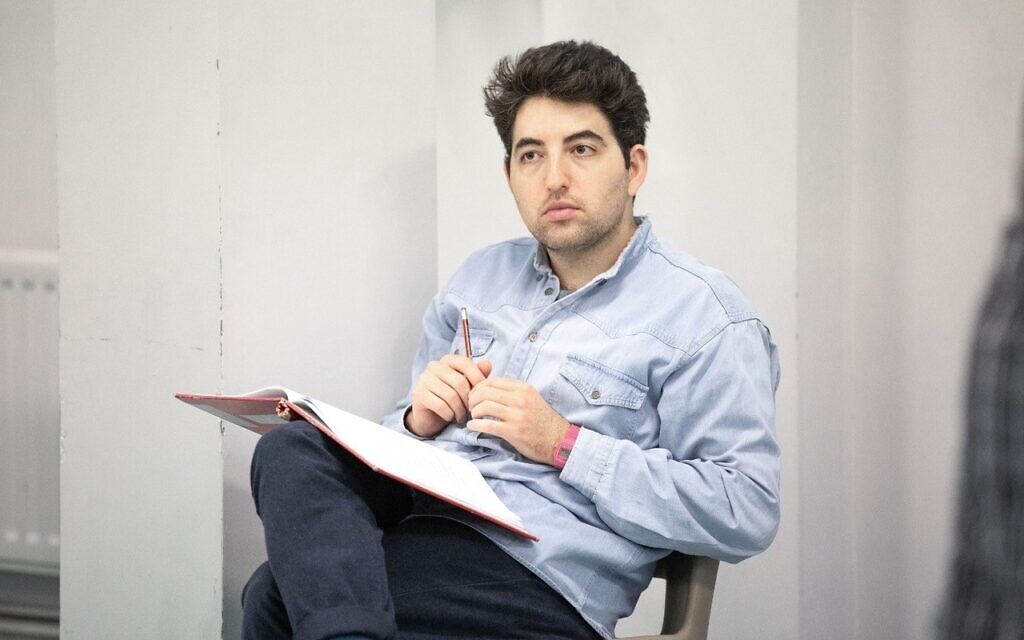Play explores torment of balancing Judaism, art and identity
In advance of next week’s UK premiere performance of My Name is Asher Lev at JW3, we speak with Alexander Lass, the director.
Tell us about My Name Is Asher Lev at JW3. What can the audience expect?
My Name Is Asher Lev is a powerful and deeply moving play by the award-winning American playwright Aaron Posner, based on the iconic best-selling novel by Chaim Potok.
“I am a traitor, a self-hater, a blasphemer, an inflictor of shame upon my family, my friends, my people…”
Get The Jewish News Daily Edition by email and never miss our top stories Free Sign Up
The protagonist, Asher Lev, is a fictionalised artist who painted the sensational ‘Brooklyn Crucifixion’. Into it he poured all the anguish and torment a Jew can feel when torn between the faith of his forebears and the calling of his art. Here Asher plunges back into his childhood and recounts the story of love and conflict which dragged him to this crossroads.
Our audience can expect an emotionally intense and provocative story performed by three terrific actors – Allan Corduner, Ilan Goodman and Giselle Wolf.
How did this project come about?

Giselle Wolf, who plays Rivkeh Lev in the reading, saw the award-winning production of the play Off-Broadway in New York in 2012/3 and she thought it was brilliant. She was surprised to learn that the play had yet to be produced here in the UK. Late last year, on the suggestion of her agent, Giselle came to see the revival of David Hare’s The Permanent Way, which I directed at The Vaults. Giselle introduced herself to me after the show, we spoke briefly about Asher Lev and the fact that she was looking for a director to move the project forwards. I must confess that although I had heard of both Aaron Posner and Chaim Potok, I had never read or seen any of their work. As soon as I found time to read the Asher Lev script, I knew before I had even finished it that it was something I wanted to direct.
The rehearsed reading at JW3 on Monday 9th March marks the first ever professional performance of My Name Is Asher Lev in the UK. We are very keen to collaborate with other interested producers and venues on creating a full production of the play in the not too distant future.
What appealed to you about the story, which really delves into the tension between faith and art?
As a director, the piece appealed to me because Potok’s visceral semi-autobiographical story is given a dynamic three-dimensionality in Posner’s adaptation – all of the characters have clear and compelling hopes and wants and fears, complimented by rich inner lives. Characters such as Asher, Ari Lev, Rivkeh Lev and the sculptor Jacob Khan, who are profoundly human and articulate, are a gift for me as a director.
I am fascinated by art, its history, processes, and practice, so much so that I studied History of Art at university. But the story appealed to me personally for its searing honesty, the unvarnished way it presents Asher’s struggle to reconcile his creative gift with the offence and pain it causes his parents and the wider members of his Chasidic community. My own upbringing was in a loving and supportive Reform Jewish household, and although I vividly remember clashes (and reconciliations) with my parents and siblings over a wide variety of issues, thankfully none of them were as significant as the turmoil of Asher’s situation.

My father is British, and he was brought up here in London in a United Synagogue community. My mother is American, and she was brought up in Merion, suburban Philadelphia, within the Conservative Jewish community. My parents were United Synagogue members for a few years after they got married and settled in London, but then they moved to Reform. My parents keep a kosher home and have been very involved in synagogue life over many years. I used to be more religiously-minded too, I kept kosher until I was 18. Like Asher, but in my own personal way, I have experienced the complex negotiation and tension between faith, ritual observance, and contemporary Western life. Unlike Asher, I was given the space and freedom to reflect on and challenge the religious choices of my parents, and find a route through the world which works for me, without judgement or feeling shame. I am very lucky indeed.
How has your Jewish identity influenced your approach to directing?
My Jewish identity has influenced my taste in directing more than my actual approach to directing. I am a secular person with a strong Jewish cultural identity. I have been directing professionally – as an assistant, associate, and director in my own right – for about ten years now, and Jewish writers feature prominently in my work.
This has not been deliberate. I never set out to specifically direct plays by Jewish writers. It just kind of happened, I am not sure why or how. I suppose it must be something to do with a shared tradition, a heritage, a mutual understanding. A Jewish upbringing, whether religious or not, certainly can instil certain values in a person – honesty, curiosity, fairness, morality, close family bonds – and emphasises the worth of certain activities and pursuits – reading, learning, arguing, persisting.
So perhaps it is no surprise that two of my favourite playwrights are Harold Pinter and Arnold Wesker. In 2016, I was Associate Director on Sean Mathias’ award-winning revival of Pinter’s No Man’s Land which starred Ian McKellen and Patrick Stewart, and in 2017 I directed a production of Wesker’s Chips With Everything. The poetry, melancholy, and dark humour of Pinter and Wesker strongly resonates with me, as does their mantra of individual independence combined with collective socio-cultural unity. Is it because of our shared Jewish identity? Definitely.

Thank you for helping to make Jewish News the leading source of news and opinion for the UK Jewish community. Today we're asking for your invaluable help to continue putting our community first in everything we do.
For as little as £5 a month you can help sustain the vital work we do in celebrating and standing up for Jewish life in Britain.
Jewish News holds our community together and keeps us connected. Like a synagogue, it’s where people turn to feel part of something bigger. It also proudly shows the rest of Britain the vibrancy and rich culture of modern Jewish life.
You can make a quick and easy one-off or monthly contribution of £5, £10, £20 or any other sum you’re comfortable with.
100% of your donation will help us continue celebrating our community, in all its dynamic diversity...
Engaging
Being a community platform means so much more than producing a newspaper and website. One of our proudest roles is media partnering with our invaluable charities to amplify the outstanding work they do to help us all.
Celebrating
There’s no shortage of oys in the world but Jewish News takes every opportunity to celebrate the joys too, through projects like Night of Heroes, 40 Under 40 and other compelling countdowns that make the community kvell with pride.
Pioneering
In the first collaboration between media outlets from different faiths, Jewish News worked with British Muslim TV and Church Times to produce a list of young activists leading the way on interfaith understanding.
Campaigning
Royal Mail issued a stamp honouring Holocaust hero Sir Nicholas Winton after a Jewish News campaign attracted more than 100,000 backers. Jewish Newsalso produces special editions of the paper highlighting pressing issues including mental health and Holocaust remembrance.
Easy access
In an age when news is readily accessible, Jewish News provides high-quality content free online and offline, removing any financial barriers to connecting people.
Voice of our community to wider society
The Jewish News team regularly appears on TV, radio and on the pages of the national press to comment on stories about the Jewish community. Easy access to the paper on the streets of London also means Jewish News provides an invaluable window into the community for the country at large.
We hope you agree all this is worth preserving.
-
By Laurent Vaughan - Senior Associate (Bishop & Sewell Solicitors)
-
By Laurent Vaughan - Senior Associate (Bishop & Sewell Solicitors)
-
By Laurent Vaughan - Senior Associate (Bishop & Sewell Solicitors)
-
By Laurent Vaughan - Senior Associate (Bishop & Sewell Solicitors)






















